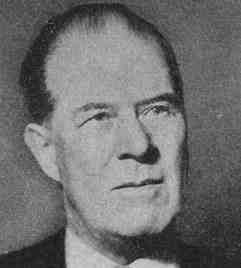Mystery Books
Mystery Movies
Mystery Authors
E. C. Bentley biography
English journalist, humorist, and detective story writer. Bentley, the creator of Philip Trent, was once called (by John Carter) the father of the contempo- rary detective story. He was born in Shepherd's Bush, a suburb of London. His father was an official in the Lord Chancellor's Department, and Bentley was educated in London at St. Paul's School, where he met G. K. Chesterton, who became his closest friend and an important influence on his career.
At nineteen Bentley won a history scholarship to Merton College, Oxford, and quickly became involved in many activities. He was president of the Oxford Union (the famed debating society) and cap- tain of the university's boat club. He also founded a school magazine -- his first literary experience.
Bentley left Oxford to study law in London and was admitted to the bar in 1902. That year he mar- ried Violet Boileau; they had two sons; one became an engineer, the other, Nicolas, a well-known artist and illustrator who also wrote several thrillers.
Also in 1902 Bentley became involved in jour- nalism, which was to be his lifelong career. He served for ten years on the editorial staff of the Daily News and then switched to the conservative Daily Telegraph, where he wrote editorials for the next twenty years. During this time he also wrote on a free-lance basis many works, ranging from political tracts to light verse in Punch.
In 1905 Bentley published Biography for Begin- ners under the pseudonym E. Clerihew. Illustrated by Chesterton, it was a volume of nonsense verse con- sisting, of a series of four-liners called "clerihews," which became almost as popular as the limerick form. Further volumes in this vein were More Bio- graphy (1929), Baseless Biography (1939), and Clerihews Complete (1951).
In 1934, after a long and busy career, Bentley retired from the arduous pressures of journalism to live quietly with his wife in Paddington. He was able to devote more time to writing detective stories as well as editing an anthology, A Second Century of Detective Stories (1938). He also edited and wrote introductions to several volumes of short stories by Damon Runyon.
The year 1940 saw the publication of Those Days: An Autobiography, as well as Bentley's return to journalism, as chief literary critic (replacing Har- old Nicolson) for the Daily Telegraph. Following the cessation of hostilities and the easing of the wartime manpower shortage, Bentley retired once again, in 1947. His wife died two years later, and he spent most of his remaining days living quietly and writ- ing, in a comfortable hotel in London.
Bentley's masterpiece, Trent's Last Case (1913), was called by The New York Times, "one of the few classics of detective fiction." Bentley also wrote a novel (his only mystery not about Trent) entitled Elephant's Work (1950), about an amnesiac who urgently seeks a master criminal. It was dedicated to John Buchan, who had advised him to write it as early as 1916.
Information source: wikipedia